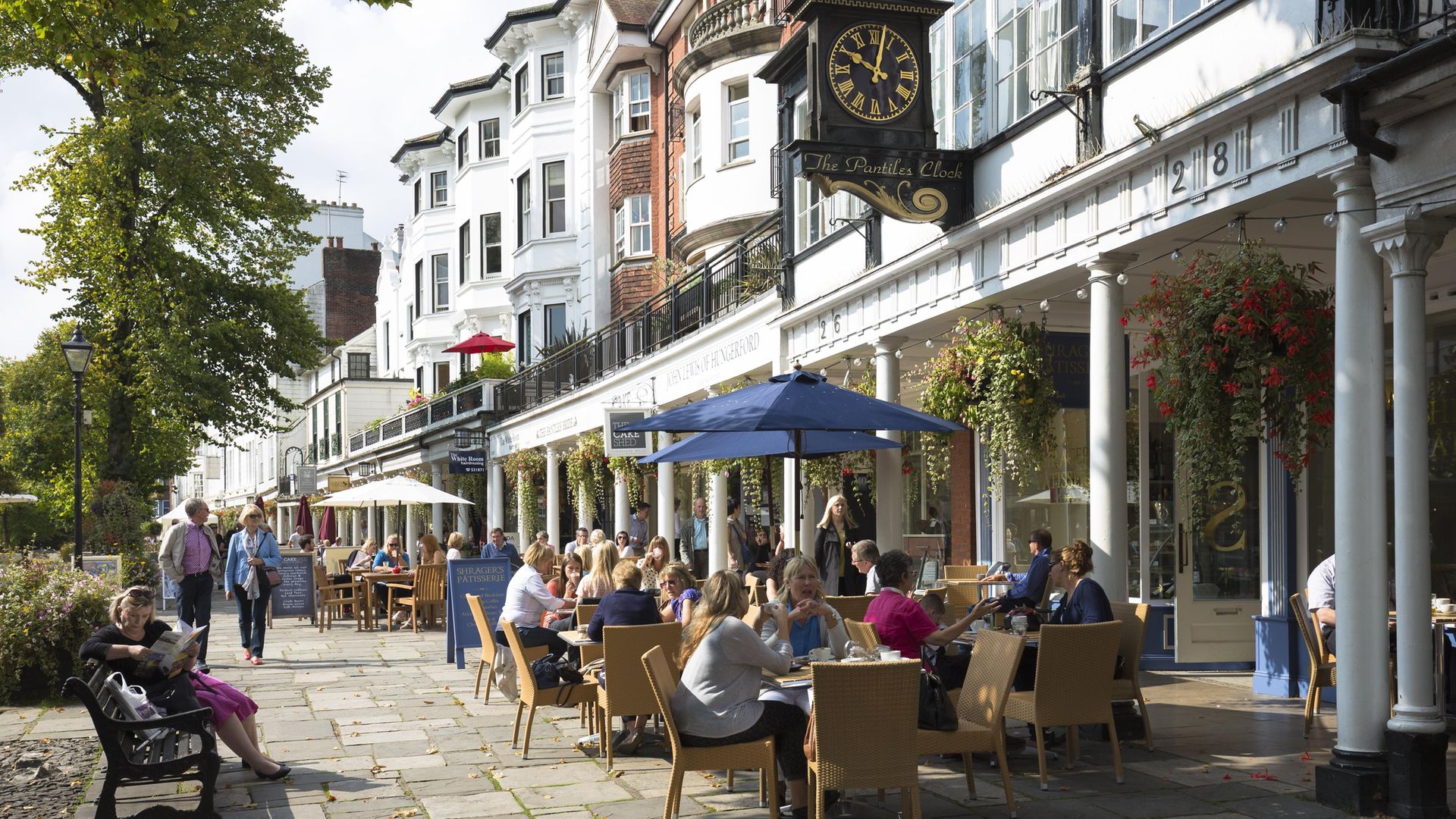
Will Self travels to Royal Tunbridge Wells to discover that in modern Britain, even a short journey takes you to another country
In keeping with Multicultural Man’s distinctly rooted existence these past 18 months – something, no doubt, many New European readers can identify with – holidays have become a deeply strange phenomenon. Last year, together with my youngest, I cycled from South London to a village on the North Downs, about 20 miles away. The topographical change felt as radical as if we’d traversed the Hindu Kush, and I looked back at the Thames Valley as if it were some primordial home from which I was being exiled forever. We were away for three days and returned via Croydon.
It’s, of course, a solecism to assume that nomads are necessarily big travellers: most hunter-gatherers occupy quite specific territories, across which they range and that’s been the case for MM’s little band in recent months as, á cause de la crise, movement has been confined to the crossing and re-crossing of the same urban district. Now, to this newly-primitive cast of minds has been added another atavism: a strange sort of transhumance, if you will, as we’ve upped sticks and driven a couple of hours to pastures new outside Royal Tunbridge Wells.
It’s a phenomenon universally experienced that it’s only upon returning from a period away that we notice the changes in ourselves: the depth of suntan, the new passion for sangria – or smoked garlic. But under this new dispensation, the holiday experience no longer adequately commoditised – since there is no new normal within which its value can be properly assayed – it becomes possible to make judgements on the hoof, while places and the people who inhabit them are beginning to reacquire a certain distinctiveness as the spaces in between them are enhanced, at least affectively.
Emma says she knew me in the 1990s when she lived in Soho, and that on a couple of occasions I decamped to her flat with other after-hours drinkers and ne’er do-wells. It’s a small world – Little England. Now she’s looking after elderly parents and the family’s bucolic property: a foursquare Edwardian house with big brick chimneys, together with a raggle-taggle of little cottages and bungalows, some of which she hires out through Airbnb. Confined all winter to a second-floor flat without even a balcony, MM has wanted nothing more than to sit on some grass with the sun warming his reptilian old skin – and my sojourn at Deer Cottage has afforded me this.
This, and a sideways slant on the ‘culture wars’ continuing to storm about the Great British teacup. Arriving from the inner-city, it’s remarkable to see valetudinarians attended by white carers – and that the employees in the local Sainsbury’s are all white as well. Indeed, perambulating the Pantiles, RTW’s 17th-century shopping parade, there are scarcely any black or brown faces to be seen – at least compared to where we live in a hugger-mugger of 1900s mansion blocks and post-war public housing. Here the built environment is older and – given clapboarding and half-timbering – whiter; while so are the people. And while I don’t for a minute mean to suggest that the inhabitants of Lambeth are any lighter-fingered than those of West Kent, the fact remains that here the supermarket trolleys are gratis, whereas in London the ante is a pound before you start shopping.
I do wonder what these honest relicts of a bygone age can possibly make of contemporary discourse, with its insistence on a supposed collective memory of racial superiority and imperial conquest. The reality of the conservative position is surely far more prosaic: I would say habit alone accounts for a culture that is less about positively enjoined values and their associated practices than a sort of amnesiac acceptance of the status quo: there are no black people to be seen, so what’s all the fuss about them and their past?
What there is to be seen are old structures that reify organic social relations – whether these be medieval churches or ancient houses. A few miles from where I’m sitting in one direction are the ruins of Bayham Abbey – while in the other is Groombridge Place and its square moat. John Evelyn visited the latter – one of the most beautiful old houses in southern England – twice in the late 1600s, although I shouldn’t imagine he booked on Airbnb.
The 19th-century drive towards social equality was accompanied by ‘settlement’ movements of one sort or another, in which working and middle class people transposed themselves in order to learn more of each other’s culture, with the objective of dissolving the barriers between them. In a contemporary world deformed by the paramount value of individual consumer choice, such strategies appear at best ridiculous – and at worst, patriarchal in the extreme. Yet we remain in a ghettoised society to this day, with communities physically as well as culturally separated: travel a few short miles in this land and you really are in another country.
All of which is by way of saying that next year I’ll be offering my own flat on Airbnb so that the denizens of Royal Tunbridge Wells can experience how the other half live.
Warning: Illegal string offset 'link_id' in /mnt/storage/stage/www/wp-includes/bookmark.php on line 357
Notice: Trying to get property 'link_id' of non-object in /mnt/storage/stage/www/wp-includes/bookmark.php on line 37







